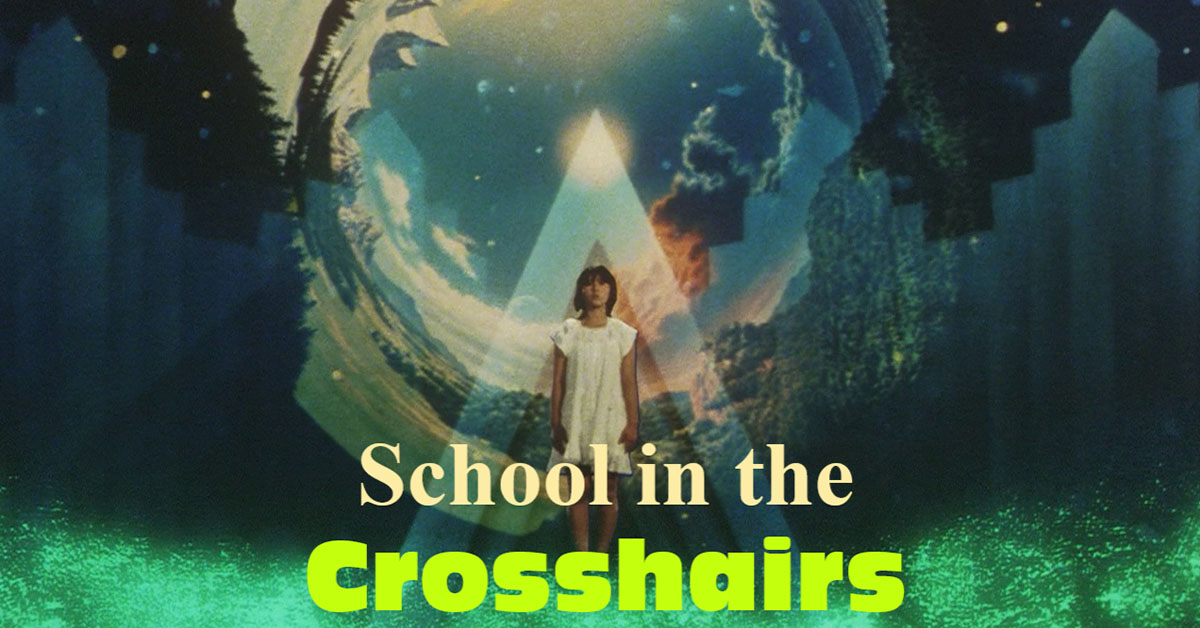School in the Crosshairs

Genre master Nobuhiko Ôbayashi is best known for 1977’s “Hausu,” and this 1981 fantasy is filled with his trademark analog special effects and camera tricks, though this time supported by a stronger main story with a well-developed central character, a notable departure from “Hausu.”
Hiroko Yakushimaru stars as Yuko, a high school girl who must defend her school from an extraterrestrial attack. A new transfer student is using her psychic abilities to transform their school into a conformist, almost fascistic staging area for an alien takeover of the Earth, while coercing her classmates into going along. Discovering her own latent telekinetic abilities, Yuko teams up with Koji, her budding boyfriend from the kendo club, to fight off the invaders. The special effects-heavy finale – a battle between Yuko and Kyogoku, the demon-like extraterrestrial being who has set his sights on the school – manages to outdo “Hausu” in its wild, brain-melting unbelievability. It’s also a brilliant statement about conformity and free thought, most likely aimed by Obayashi at Japanese society in general and the film industry in particular. Despite having been remade over and over as a television series, animation, and other live-action films, it’s Obayashi’s version that is considered the best by Japanese critics and fans.
Hiroko Yakushimaru stars as Yuko, a high school girl who must defend her school from an extraterrestrial attack. A new transfer student is using her psychic abilities to transform their school into a conformist, almost fascistic staging area for an alien takeover of the Earth, while coercing her classmates into going along. Discovering her own latent telekinetic abilities, Yuko teams up with Koji, her budding boyfriend from the kendo club, to fight off the invaders. The special effects-heavy finale – a battle between Yuko and Kyogoku, the demon-like extraterrestrial being who has set his sights on the school – manages to outdo “Hausu” in its wild, brain-melting unbelievability. It’s also a brilliant statement about conformity and free thought, most likely aimed by Obayashi at Japanese society in general and the film industry in particular. Despite having been remade over and over as a television series, animation, and other live-action films, it’s Obayashi’s version that is considered the best by Japanese critics and fans.

